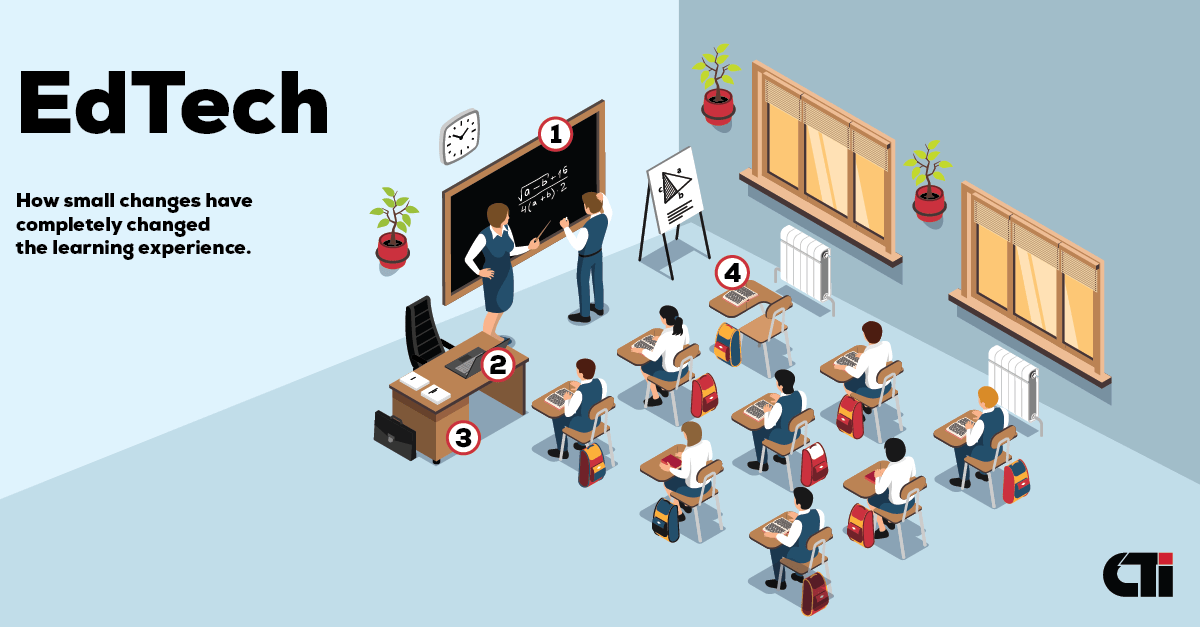Have you ever pondered how technology shapes our educational landscape and what the future holds for tech-enabled education? As I think about this, I am constantly amazed by the transformative power of technology in our classrooms. From digital classrooms to interactive learning tools, the future of education seems incredibly bright and filled with possibilities.
The Evolution of Tech-Enabled Education
As I reflect on the past decade, it’s clear that tech-enabled education has evolved significantly. Gone are the days when learning was solely confined to textbooks and lectures. Today, technology enhances the learning experience, making it more interactive and engaging.
The Rise of E-Learning
E-learning emerged as a revolutionary approach, allowing students to access a wealth of information at their fingertips. I remember my first encounter with online courses, and it felt like opening a door to a vast library. Platforms like Coursera and edX provided me with opportunities to learn from renowned universities without stepping foot in a classroom.
Blended Learning Environments
Blended learning took e-learning a step further by combining traditional classroom instruction with online activities. This hybrid model has enabled me and many others to benefit from the best of both worlds. I appreciate how blended learning allows for personalized pacing, enabling students to grasp concepts before progressing.
Gamification in Education
I find gamification to be one of the most exciting trends in tech-enabled education. With game-like elements integrated into the learning process, it transforms mundane tasks into engaging challenges. I can recall using educational games that made math practice feel like an adventure, which ultimately improved my skills while having fun.
Technologies Shaping the Future of Education
The technologies influencing the future of education are numerous, and each one holds the potential to enhance learning experiences significantly.
Artificial Intelligence and Adaptive Learning
Artificial Intelligence (AI) is reshaping education by providing personalized learning experiences. I recently learned about adaptive learning platforms that analyze student performance in real-time, adjusting content to fit individual needs. This personalized approach helps ensure no student is left behind.
Virtual Reality and Augmented Reality
Virtual Reality (VR) and Augmented Reality (AR) create immersive learning experiences that were once thought to be the stuff of science fiction. Imagine studying ancient civilizations by virtually walking through their streets or dissecting a frog in 3D—how cool is that? I find VR and AR fascinating as they allow me to visualize complex concepts in ways I never imagined.
Blockchain Technology in Education
Blockchain technology is gaining traction in education, particularly for managing credentials and certifications. By providing a secure, verifiable record of achievements, I see how this technology could streamline the process of applying for jobs or higher education, ensuring that my hard work is documented and trusted.
The Internet of Things (IoT)
The adoption of the Internet of Things (IoT) in education creates interconnected devices that improve the learning environment. Smart classrooms equipped with IoT devices allow for real-time data collection and analysis, enhancing teaching methods and student engagement. I think it’s incredible that classrooms can adapt to meet my learning preferences.
Benefits of Tech-Enabled Education
Embracing technology in education brings several compelling benefits that are revolutionizing the way I learn.
Increased Accessibility
One of the most significant advantages of tech-enabled education is its increased accessibility. Students from remote areas now have the opportunity to access quality educational resources online. I remember how educational YouTube channels made it possible for me to learn complex subjects that weren’t available in my local school.
Flexibility and Convenience
Tech-enabled education offers unparalleled flexibility. I can learn at my own pace, choosing when and where to study. This flexibility has allowed me to balance my academic life with work and other commitments effectively. Online resources are available 24/7, ensuring I can fit learning into my schedule.
Collaboration and Communication
Technology fosters collaboration among students and educators. I’ve participated in group projects that connected me with peers from around the world, highlighting the power of teamwork across cultures. Online discussion forums and collaborative tools make communication seamless, enriching the learning experience.
Cost-Effectiveness
With many educational resources available for free or at a reduced cost online, tech-enabled education has become more affordable for many students. I remember being able to access free textbooks and tutorials online, significantly reducing my educational expenses.
The Challenges of Tech-Enabled Education
While tech-enabled education comes with numerous benefits, it also faces several challenges that we need to address as we move forward.
Digital Divide
Despite the advancements, a digital divide still exists. Not everyone has equal access to the internet and digital tools, particularly in underserved communities. I think it’s crucial for educational institutions and policymakers to work toward bridging this gap, ensuring that every student has the resources needed for success.
Overreliance on Technology
As technology becomes more integrated into education, there is a risk of overreliance on digital tools. While I appreciate the convenience, I also recognize the importance of building critical thinking and problem-solving skills without relying solely on technology. Balancing tech use with traditional learning methods is essential.
Data Privacy Concerns
With the increase of online platforms collecting student data, data privacy remains a pressing concern. I often wonder how my information is being used and who has access to it. Educational institutions must prioritize data protection to keep students’ personal information safe.
The Role of Educators in a Tech-Enabled Future
As I think about the future, I believe that educators will play a pivotal role in the development of tech-enabled education.
Adapting to New Teaching Methods
Educators must adapt to incorporating technology into their teaching styles. I admire teachers who embrace digital tools to enhance their lessons rather than viewing them as distractions. Professional development opportunities can help educators learn how to use technology effectively in their classrooms.
Fostering Digital Literacy
Teaching digital literacy is essential for preparing students for success in a technology-driven world. I have found that understanding how to navigate online resources and critically evaluate information is crucial. Schools should integrate digital literacy into their curriculums to equip students with these necessary skills.
Supporting Personalized Learning
As technology facilitates personalized learning, educators can provide tailored support based on individual student needs. I believe that teachers can leverage data from adaptive learning platforms to identify areas where students may struggle and offer targeted assistance.
Preparing for the Future of Tech-Enabled Education
Looking ahead, there are several steps we can take to prepare for a future filled with tech-enabled educational opportunities.
Emphasizing Lifelong Learning
I recognize that the pace of technological advancements will continue to accelerate. As learners, we must embrace lifelong learning, continually seeking new knowledge and skills. Educational institutions can encourage this mindset by offering ongoing training and professional development.
Encouraging Interdisciplinary Approaches
The future of education will require interdisciplinary approaches that combine various fields of study. I’ve experienced how projects that blend science, technology, engineering, and the arts (STEAM) offer richer learning experiences. Encouraging collaboration among different subjects will prepare students for a complex world.
Involving Stakeholders
It’s vital that all stakeholders, from policymakers to educators to parents, collaborate in creating a tech-enabled educational ecosystem. I believe that open communication and shared goals among all parties can lead to more effective education policies that benefit everyone involved.
Conclusion
At this juncture in our educational journey, it feels as if we’re on the brink of something extraordinary. I am genuinely excited about the potential of tech-enabled education to transform lives and empower future generations. By embracing technology thoughtfully, we stand to make learning more accessible, engaging, and effective.
As we move forward, let’s remain mindful of the challenges that lie ahead and work in unity to harness the full potential of technology in education. Together, we can shape a future where every student can thrive in a tech-enabled world, equipped with the skills needed to succeed in their personal and professional lives.






